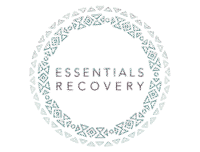Recovery from addiction is not a one-size-fits-all process. Each individual enters treatment with a different background, lifestyle, and level of support. For many, an intensive outpatient program (IOP) strikes the ideal balance between structured care and personal freedom. It offers a comprehensive approach to recovery without the need for full-time residential treatment.
An IOP is designed for individuals who require more support than standard outpatient therapy but do not need 24-hour supervision. These programs typically involve several hours of treatment each week, including therapy sessions, group counseling, educational workshops, and relapse prevention planning. Participants can maintain their regular daily activities—such as work, school, or family responsibilities—while receiving consistent therapeutic support.
Flexible Treatment With Real-Life Application
One of the biggest advantages of an intensive outpatient program is its flexibility. Participants do not need to step away from their lives entirely. Instead, they attend scheduled sessions during the day or evening, allowing them to continue fulfilling personal, academic, or professional obligations.
This flexibility makes IOPs an appealing choice for people who have already completed a residential treatment program and are transitioning back into everyday life. It also benefits individuals who cannot commit to inpatient treatment due to financial constraints, family duties, or other responsibilities.
Being able to apply the coping strategies learned in treatment directly to real-life situations makes IOPs uniquely practical. Individuals have the opportunity to navigate real-world triggers and challenges while still receiving support from their clinical team. This blend of structure and freedom can significantly strengthen long-term recovery.
Comprehensive and Structured Support
Even though IOPs offer greater independence than inpatient programs, they still provide a high level of structure and accountability. Participants attend therapy multiple times per week and follow a consistent schedule designed to foster stability and progress.
The treatment plan often includes a mix of individual therapy, group therapy, and educational sessions. Topics may cover relapse prevention, communication skills, stress management, and emotional regulation. Many IOPs also integrate family therapy, trauma counseling, and holistic practices such as mindfulness or meditation.
This comprehensive approach ensures that individuals address the root causes of their addiction while learning practical strategies to manage triggers and build healthier behaviors. The consistent engagement also creates routine, which is a powerful ally in early recovery.
Access to a Supportive Community
Recovery is rarely successful in isolation. One of the core strengths of an intensive outpatient program is the sense of community it provides. Regular group therapy sessions allow participants to connect with others who understand what they’re going through, share their experiences, and offer mutual encouragement.
This peer support can reduce feelings of shame and isolation, which are common during recovery. Group sessions also foster accountability. Knowing that others are facing similar challenges and rooting for your progress can be a powerful motivator to stay committed.
In many cases, these connections extend beyond the treatment setting. People often form lasting friendships or develop ongoing recovery networks, such as peer support groups or mentorships, that continue to offer encouragement long after the program ends.
Personalized Treatment Plans
Every individual in recovery has a unique set of needs, challenges, and goals. IOPs are typically built around individualized treatment plans that reflect these differences. During the initial intake process, clinicians assess the person’s physical health, mental health, substance use history, and personal background.
Based on this assessment, a customized plan is created that may include specific therapy modalities, such as cognitive behavioral therapy, dialectical behavior therapy, or trauma-informed care. Some individuals may benefit from medication-assisted treatment, while others may focus more heavily on emotional regulation or social support.
As participants move through the program, their progress is regularly evaluated and the plan is adjusted as needed. This personalized approach helps ensure that care remains effective and aligned with the individual’s evolving needs.
Focus on Relapse Prevention
A key element of any recovery program is preparing for the challenges that may arise after treatment. IOPs place a strong emphasis on relapse prevention, equipping individuals with the tools they need to recognize and manage their triggers.
Relapse prevention education might involve identifying high-risk situations, learning to regulate emotions, improving communication skills, and building a strong support network. Participants also develop concrete action plans to use if cravings arise or if they encounter setbacks.
Rather than viewing relapse as a failure, IOPs often approach it as a potential part of the recovery process that can be navigated and learned from. This perspective helps reduce shame and encourages individuals to seek help when they need it.
Seamless Transition from Inpatient to Independent Living
For individuals who have completed a residential treatment program, stepping back into everyday life can feel overwhelming. An IOP offers a bridge between the intensity of inpatient care and the autonomy of living independently.
This transitional phase is critical. Without ongoing support, individuals are more likely to struggle with stressors, temptations, and the general readjustment to daily life. IOPs allow for a gradual re-entry, offering continued therapy and structured routines while encouraging greater personal responsibility.
The continuity of care helps reinforce the progress made during residential treatment and provides a buffer against relapse during this vulnerable time.
Integration of Mental Health Support
Addiction and mental health are often deeply intertwined. Many individuals who struggle with substance use also experience conditions such as depression, anxiety, PTSD, or bipolar disorder. An IOP is well-suited to address these co-occurring disorders through integrated care.
Therapists and medical professionals within the program work together to ensure that mental health needs are met alongside addiction treatment. This may involve medication management, psychiatric evaluations, or targeted therapy focused on emotional healing.
By addressing mental health and substance use simultaneously, IOPs promote more comprehensive healing and reduce the risk of recurrence.
Encouraging Family Involvement
Family dynamics often play a significant role in both addiction and recovery. Many IOPs encourage family participation through counseling sessions, educational workshops, or family days. These components help loved ones understand addiction, learn healthy communication strategies, and rebuild trust.
When families are involved in treatment, outcomes often improve. A supportive home environment can enhance accountability, reduce isolation, and promote emotional stability. Family members also benefit by receiving their own support and guidance through the recovery process.
Educating and involving the family system contributes to long-term healing and prevents patterns that may contribute to relapse.
Affordability and Accessibility
Compared to inpatient treatment, IOPs are generally more affordable. Because participants are not paying for room and board, the cost of care is significantly lower. This makes IOPs more accessible to individuals who may not have insurance coverage for inpatient programs or who are working with a limited budget.
Many programs offer sliding scale fees, payment plans, or financial assistance. The outpatient format also allows individuals to maintain employment or attend school while receiving care, reducing financial strain and promoting independence.
Increased affordability and flexibility mean that more people can access the help they need without sacrificing stability in other areas of life.
Long-Term Benefits and Lasting Change
Recovery doesn’t end when a treatment program concludes—it’s an ongoing journey that requires continued effort and support. IOPs set the stage for long-term success by building resilience, teaching life skills, and promoting healthy routines.
Because participants engage with treatment over a longer period of time, they have more opportunities to practice new habits, receive feedback, and grow. This extended engagement can lead to deeper insights and stronger internal motivation.
Graduates of IOPs often leave with a well-developed recovery toolkit, ongoing support networks, and a clear plan for maintaining sobriety. These elements can significantly reduce the risk of relapse and enhance quality of life.
A Bridge to a Brighter Future
An intensive outpatient program provides a vital option for individuals seeking recovery on their own terms. It offers the best of both worlds: structured support and personal flexibility. Whether used as a step-down from inpatient treatment or as a primary path to healing, IOPs empower individuals to rebuild their lives while staying grounded in their everyday responsibilities.
By combining personalized care, community support, mental health integration, and practical life tools, IOPs help individuals reclaim control, find purpose, and move forward with confidence. For many, it is not just a treatment option—it’s a bridge to a better, healthier future. Call us today at 855-509-1697.



